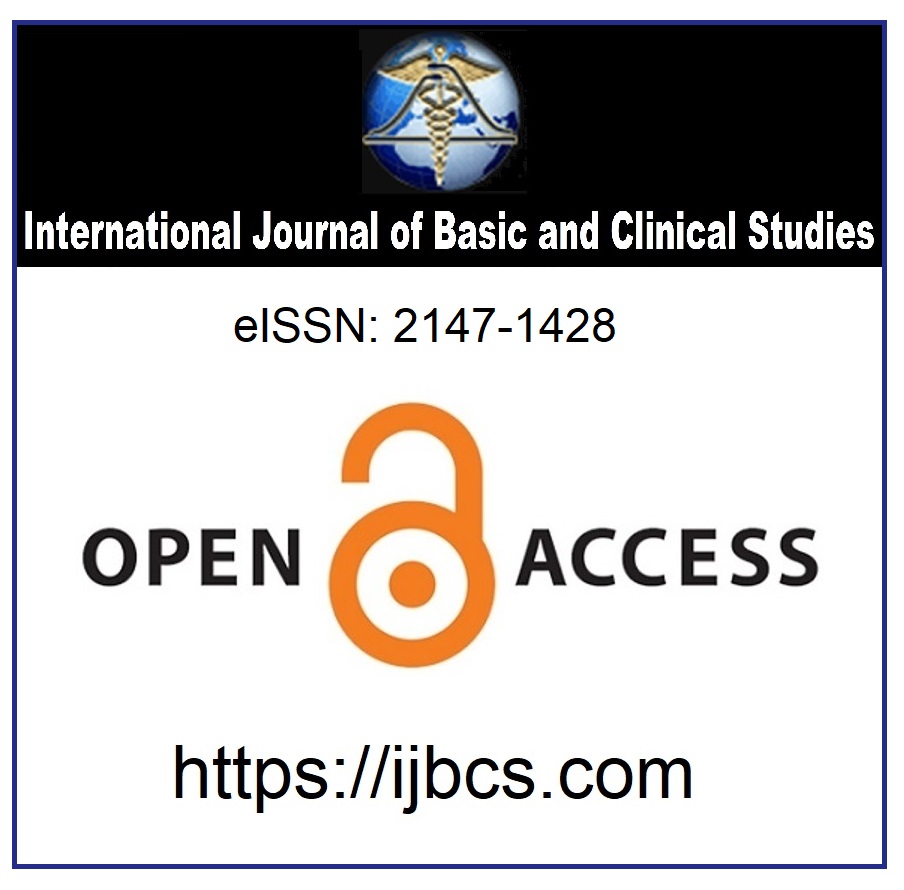Assessment of the Healthy Life Style Behaviors and Self-Efficacy Levels of the Nursing and Midwifery Students at a University
Keywords:
Student, Nursing, Midwifery, Self-Efficacy-Proficiency, Healthy LifestyleAbstract
Introduction and Purpose: Self efficacy is defined as the belief that individuals can begin the activities which are necessary for their life; positive results can be obtained. An increase in the status of success and well-being means a strong self-efficacy belief. The way of life is defined as all of individuals' personal decisions that affect their health positively or negatively. The concept of healthy lifestyle, which is an important component of health promotion, is defined as the control of all behaviors by individuals, which can affect their health and self regulation of their daily activities by choosing appropriate behaviors for their health. Health behavior is the basis for the development of a healthy lifestyle and protection from diseases. Health professionals' age, gender, lifestyle, beliefs and attitudes, perceptions and acceptances about the individuals they serve, play a part in the management of behavioral risk factors for the healthy lifestyle of individuals. This study was carried out to analyze the self efficacy levels and healthy lifestyle behaviors of the nursing and midwifery students studying at a university.
Method: The study was designed as a cross-sectional descriptive study and conducted between March and May 2018, with the nursing and midwifery students studying at a Health College. 366 (77.6%) students who agreed to participate in the study included in the study without any sample selection. The data were collected using the Personal Information Form prepared by the researchers, the Health-Promoting Lifestyle Profile II (HPLP-II) and the General Self Efficacy Scale (GSE). The statistical analysis of the data were performed with the SPSS 22 package program. Percentage, mean, minimum, maximum, standard deviation, Chi-square test and Pearson's correlation test were used in the analysis of the data. p<0.05 was considered as statistically significant.
Results: The mean age of the students was 21.22 ± 2.06. 72.1% of the students were female; 46.7% of them stayed in a dormitory; 81.4% of them were normal weight; 11.2% of them were smokers; 77.3% of them consumed coffee; 4.6% of them were married; 48.9% of them having illiterate mothers.It was determined that the mean score of the students on the HPLP II was 129.08 ± 20.79 while the mean score of the students on the GSE was 74.19 ± 8.76. No significant relationship was found between the students' coffee drinking status, disease status, marital status, social security, work status, body mass index and their mean sores on the overall HPLP II, it's subscales and the GSE (p>0.05). In our study, there was no significant correlation between the students' scores on the HPLP II and their ages (p<0.05) and between their scores on the HPLP II and GSE (p>0.05).
Conclusion and Recommendations: In conclusion, it was determined that the scores of the nursing and midwifery students on the HPLP-II and GSE were moderate; there was a difference in scores between the departments and the class years. Students need to gain self-efficacy with their personal lifestyles, beliefs and attitudes in order to be professionally competent.
Downloads
Published
How to Cite
Issue
Section
License
Copyright (c) 2018 by the Authors

This work is licensed under a Creative Commons Attribution 4.0 International License.



